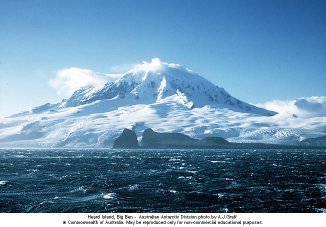Future of Antarctica

Effects on the World
With the increasing amount of pollution and oil spills and such occurring, the Antarctica is beginning to react to the changes. The Ozone layer has diminished rapidly over Antarctica allowing the harmful UV rays to reach earth and harm the plants and animals. Global Warming has increased the temperature around the whole world, and due to the damage already done to Antarctica, the albedo is unable to reflect back the light. Instead it is now absorbing some of the light and causing the ice sheets and shelves to melt, which then causes the sea levels to rise, which in turns, wipes out low altitude islands.
Tourism
With increasing number of curious people, wanting to see and taste the unexplored continent, tourism has of late become a primary issue. If in the future we allow large amounts of people to have access to walking on the land, then we may destroy valuable research that could benefit us all. Currently there are three methods for tourists to see Antarctica: ship, flights and land- based tours.
Mineral Resources
With the rapid depletion of our oil and other resources, the future could see us mining Antarctica to strip it of all the minerals it contains. At the moment only one percent of Antarctica's resources has been mapped, but we still know that this continent contains rich plentitudes of fuel and uranium. (a future energy source maybe) If people mine in Antarctica some drastic effects could occur. First there would be more air pollution and rubbish on this remote continent causing poisoning to native plants and animals, the land will be spoilt due to buildings being constructed and destroying breeding grounds, and there is a high risk of accidents occurring due to weather conditions.
Problems brought to Antarctica
Since people first visited and explored Antarctica they have failed to see what they could do concerning the destruction of the natural land. As people come, over several small seeds from weeds and other plants have traveled with them. The introduction of these many species of weeds have resulted with them now existing side by side with the native vegetation and on the land surrounding the settlements.
Damage by exhaust fumes, chemicals, and oil disposals from bases and ships have poisoned and spoilt the land.
The Sewage is increasing and is running into the sea, becoming visible to the people nearby
Diseases are introduced and are spread to the animals
What Australia has done to help Antarctica
The waste that bases have collected over the period of time the people have spent there must be transported and disposed of back in their own country
Visitors are educated on how to preserve and respect native plants and animals, sites and the land itself
Vessels must meet the high standards set such as in equipment, crewing, and waste disposal
Field parties are required to remove excess packaging before they depart, and all waste that is accumulated over the journey must be collected in plastic bags and returned to the station
A permit system has been set up to help control experiments on animals and plants
HOME
Captain Robert Falcon Scott
Photo's of Scott's Expedition
Antarctic Treaty